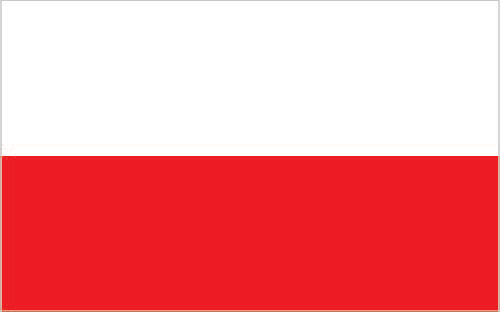
Source: World Bank
Meeting & Greeting
Polish businesspeople initially take a formal approach to business. This may come across as quite distanced but is not the intention. You may also notice differences in style between government officials who maintain formality and entrepreneurs who willingly dispense with formality. It is best to let your colleagues determine the level of formality used. General tips include:
. Shake hands with everyone upon arriving and leaving.
. Handshakes are quite firm and eye contact is valued.
. Wait for a woman to extend her hand.
. Some older businessmen may kiss a woman's hand upon meeting. Do not imitate this behaviour as it may be seen as you poking fun.
. Titles are considered prestigious. Academic or professional titles are used with the honorific titles with or without the surname.
. Wait to be invited before moving to first names. You may do business with people for years and not be on a first name basis.
. Business cards are exchanged without formal rituals.
. Try and have one side of your card translated into Polish.
. Include advanced university degrees and titles on your business card; qualifications are impressive.
Communication Styles
. Generally speaking, Poles judge others by their personal qualities. They therefore like to spend time getting to know people as individuals. This allows them to size people up.
. Honesty is highly valued in Poland since trust is the cornerstone of business relationships. Building personal relationships is essential for successful business dealings, especially if you are looking for a long-term business relationship.
. Poles are known for being direct communicators, i.e. they say what they are thinking. However they are also very sensitive to other’s feelings and let that determine how and what they say.
. While direct communication is valued in Poland, there is also emphasis on finessing what is said in order to deliver information in a diplomatic way.
. The level of the relationship mostly determines how direct someone can be.
. For newly established and more formal relationships, a great deal of emphasis is placed on diplomacy. Once a relationship has passed through the initial phases, people feel more comfortable speaking frankly with each other and animated exchanges become more common.
Business Meetings
. The most senior Pole generally opens the meeting and sets the groundwork for what is to be discussed.
. He may also verbally offer a recommended agenda for the discussions.
. Small talk is the norm at the start of meetings; do not rush proceedings as this is part of the relationship building process.
. The first few meetings may in fact seem to be more small talk than business discussions. If this is the case it means that your Polish colleagues are still sizing you up and have not yet made up their minds.
. You may want to consider this as an opportunity to get more personal and try and form that relationship.
. Lunch and dinner meetings are often used to further the personal relationship.
. Meetings tend to be relatively relaxed once the personal relationship has been established.
. Hard facts are important so participants come well-prepared with facts and figures to back up their statements. Foreigners would be expected to do the same.
. Business decision-making processes tend to have a hierarchical basis, and therefore many decisions will be taken at the top echelons of the company.
. Final decisions are translated into rigorous, comprehensive action steps that you can expect will be carried out to the letter.